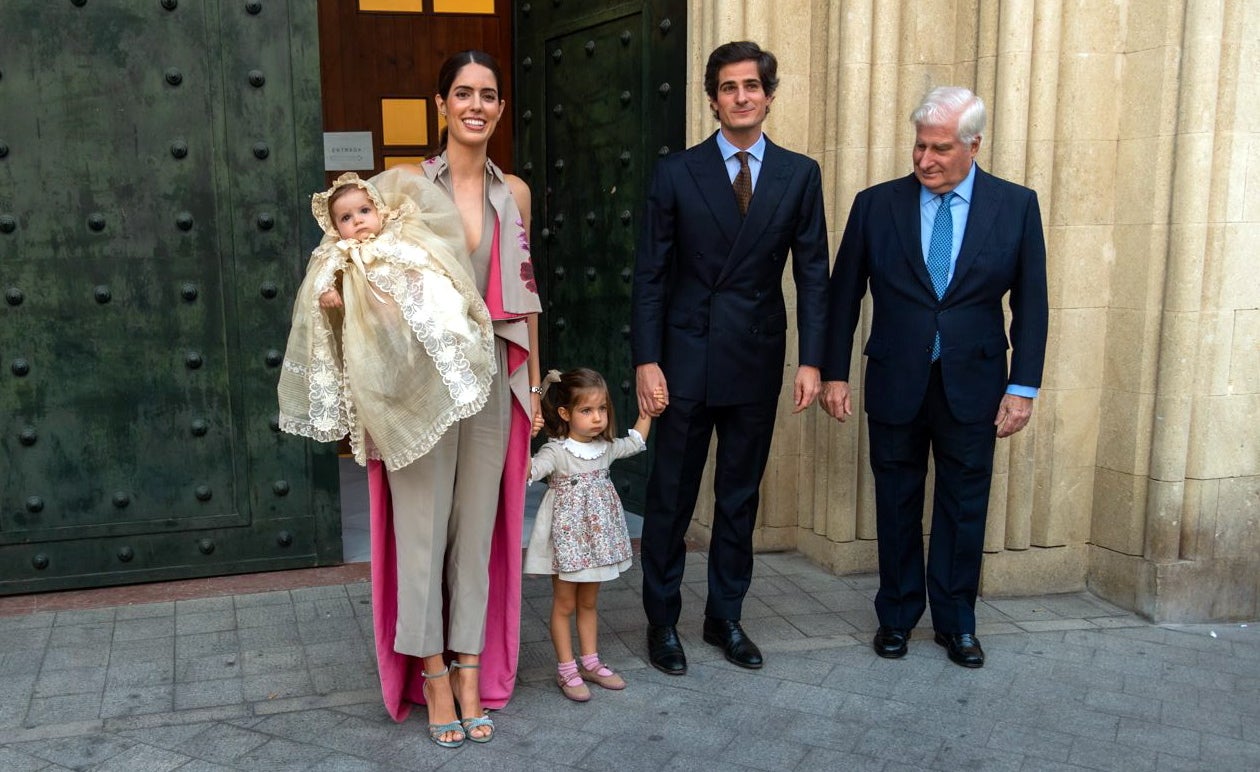What an aristocratic Spanish baby with 15 fabulous names can teach us about modern life
The plight of the Spanish duke unable to legally register his daughter in the long-winded name with which she was baptised acts is a reminder of what can go wrong when couples try to be fancy and attempt double-barrelling, writes Emily Watkins


Your support helps us to tell the story
From reproductive rights to climate change to Big Tech, The Independent is on the ground when the story is developing. Whether it's investigating the financials of Elon Musk's pro-Trump PAC or producing our latest documentary, 'The A Word', which shines a light on the American women fighting for reproductive rights, we know how important it is to parse out the facts from the messaging.
At such a critical moment in US history, we need reporters on the ground. Your donation allows us to keep sending journalists to speak to both sides of the story.
The Independent is trusted by Americans across the entire political spectrum. And unlike many other quality news outlets, we choose not to lock Americans out of our reporting and analysis with paywalls. We believe quality journalism should be available to everyone, paid for by those who can afford it.
Your support makes all the difference.Following news that a Spanish duke’s new daughter has too many names to be officially registered, I have been sent into a tailspin.
The plight of the baby with 15 fabulous names – namely, Sofía Fernanda Dolores Cayetana Teresa Ángela de la Cruz Micaela del Santísimo Sacramento del Perpetuo Socorro de la Santísima Trinidad y de Todos Los Santos (no, really) – has reignited my own worry about double-barrelling: that eventually it becomes not only unwieldy, but legally impossible. Trouble is, it’s the only way I can think of to name a baby without symbolically deleting one of its parents. What to do?
Naming a child has always been a fraught endeavour. Tom or Tristram? Aubrey or Sam? Helen or Tabitha? The pressure to give them something interesting that won’t date, doesn’t sound pompous and that works for a baby as well as the adult they’ll one day become, is ferocious.
Do you saddle them with a family hand-me-down, or try to come up with a new series of syllables all together? Even if you think you’re being original, there’s a very real danger that your peers are under precisely the same delusion.
My parents (love you, mum and dad) are a prime example. Apparently, “Emily” sounded obscure and Victorian when they chose it in 1993 – but growing up, there were always at least two others in every class.
Until recently, choosing your child’s first name was the hard bit; last names have historically been easier to settle. For thousands of years, children in the UK took their dad’s surname. While there are exceptions – my boyfriend has his mum’s, for instance – they have largely proved the rule. Convention dictated that a woman would marry a man, take his name and bear 2.4 of his children, and that was that. Today, though, shifting social mores and rising feminist consciousness – not to mention increased visibility of same-sex couples, free from the heteronormative shackles of nuclear family-naming – have seen fresh conventions bubble to the surface.
Some are coming up with surnames that combine their existing ones – Purdy and Stewart might become Sturdy, for instance – and passing those to their children. Other (straight) couples are inverting the old patriarchal trope and using the woman’s last name rather than the man’s.
Then there are the double-barrellers. While in Spain it is traditional for children to take both parents’ surnames (that’s not precisely little Sofía’s predicament, but many of her names honour family members), double-barrel monikers in the UK have historically been associated with the upper classes – two equally powerful dynasties converging and demanding equal space on the offspring’s birth certificate. But today, in a bid for name-y equality, double name-dom is gaining traction among British couples without any dynasties to speak of. And while all the naming options have their downsides, I think my heart is with the doublers.
Though they risk sounding posh – near unforgivable – the arbitrary evenhandedness of double-barrel names mean that, ultimately, they emerge as the best of a bad bunch.
Peace will reign and the population will be equally represented in the surnames of their children for one generation. But nothing can last forever. While I welcome our double-barrelled future, it is mathematically unsustainable.
Eventually, the double-barrelled babies will start having babies of their own. What happens when Billie Watkins-Gale and Holly Cooper-Pycroft couple up? How about when the resulting Watkins-Gale-Cooper-Pycroft falls for a Dhar-Dewar-Cross-Piper? God help them if they ever meet Sofía Fernanda Dolores Cayetana Teresa Ángela de la Cruz Micaela del Santísimo Sacramento del Perpetuo Socorro de la Santísima Trinidad y de Todos Los Santos.
Double-barrelling might work for my generation but, as with so many things, it’s our children who will have to iron out the details (if they’ve got time to think between pronouncing each other’s exponentially expanding names).
Welcome to the world, little Sofía, and good luck. Yours is truly a name to conjure with.
Join our commenting forum
Join thought-provoking conversations, follow other Independent readers and see their replies
Comments